Space find smells like rotten eggs
Scientists have discovered a molecule that has never before been found outside our solar system. The Jupiter-sized exoplanet has long intrigued astronomers because of its scorching temperatures, piercing winds and sideways rain of glass. Now data from the James Webb Space Telescope has revealed another intriguing feature of the planet known as HD 189733b: it smells like rotten eggs.
 Photo: ESA/Hubble
Photo: ESA/Hubble
Researchers studying the atmosphere of planet HD 189733b used Webb observations to detect trace amounts of hydrogen sulfide — a colorless gas that emits a strong sulfuric odor and has never been discovered outside our solar system. This discovery expands our knowledge of the potential composition of exoplanets, notes CNN.
The results, compiled by a team from several institutes, were published Monday in the journal Nature.
Scientists first discovered HD 189733b in 2005 and later identified the gas giant as a “hot Jupiter” — a planet that is chemically similar to Jupiter, the largest planet in our solar system, but with a very high temperature. Located just 64 light-years from Earth, HD 189733b is the closest hot Jupiter that astronomers can study as the planet passes in front of its star. For this reason, it is one of the most well-studied exoplanets.
“HD 189733 b is not only a gas giant, but also a ”giant" in the field of exoplanets because it is one of the first transiting exoplanets ever discovered, says lead study author Guangwei Fu, an astrophysicist at Johns Hopkins University. – This is the starting point for many of our ideas about the chemistry and physics of the atmosphere of exoplanets.
The planet is about 10% larger than Jupiter, but much hotter because it is 13 times closer to its star than Mercury is to our sun. According to Fu, HD 189733b takes only about two Earth days to complete one orbit around its star.
This proximity to the star gives the planet a scorching average temperature of 1,700 degrees Fahrenheit (926 degrees Celsius) and strong winds that blast glassy silicate particles from high clouds around the planet at speeds of 5,000 miles per hour (8,046 kilometers per hour).
When astronomers decided to use the Webb telescope to study the planet to see what infrared light invisible to the human eye could detect in the atmosphere of HD 189733b, they were in for a surprise.
According to Fu, hydrogen sulfide is present on Jupiter, and it was predicted that that it would exist on the exoplanets of the gas giants, but its molecules were inaccessible outside our solar system.
“Hydrogen sulfide is one of the main sources of sulfur in planetary atmospheres,” says Fu. – The high precision and infrared capabilities of the Webb telescope allow us to detect hydrogen sulfide on exoplanets for the first time, which opens a new spectral window in the study of the chemical composition of the atmosphere of exoplanets. This helps us understand what exoplanets are made of and how they came to be.
Additionally, Fu said, the team found water, carbon dioxide and carbon monoxide in the planet's atmosphere, which means these molecules could be common on other exoplanets — gas giants.
Although astronomers don't expect life to exist on HD 189733b due to its high temperatures, the discovery of the building block sulfur on the exoplanet sheds light on the planet's formation, Fu said.
“Sulfur is a vital element for building more complex molecules, and like carbon, nitrogen, oxygen and phosphate, scientists need to study it more to fully understand how planets form and what they are made of”, — emphasizes Fu.
Molecules with distinct odors, such as ammonia, have previously been detected in the atmospheres of other exoplanets.
But the capabilities of the Webb telescope allow scientists to identify specific chemicals in the atmospheres around exoplanets in more detail than before.
In our solar system, ice giants such as Neptune and Uranus, although less massive overall, contain more metals than the gas giants Jupiter and Saturn, which are the largest planets, suggesting a possible correlation between metal content and mass.
Astronomers believe that the formation of Neptune and Uranus involved more ice, rocks and metals than gases such as hydrogen and helium.
Webb's data also showed that heavy metal levels at HD 189733b are similar to those discovered on Jupiter.
“Now we have this new measurement that shows that the concentration of metals on a planet is really a very important reference point for this study of how the composition of a planet changes depending on its mass and radius,” Fu says. – The findings support our understanding of how planets form by creating harder material after initial core formation, and then naturally becoming enriched in heavy metals.
The team will now look for traces of sulfur on other exoplanets and determine whether high concentrations of this compound influence how close some planets form to their host stars.
“HD 189733b is a reference planet, but it represents just one data point, Fu notes. – Just as individuals exhibit unique characteristics, our collective behavior follows clear trends and patterns. With new datasets from Webb, we're aiming to understand how planets form and whether our solar system is unique in the galaxy.


















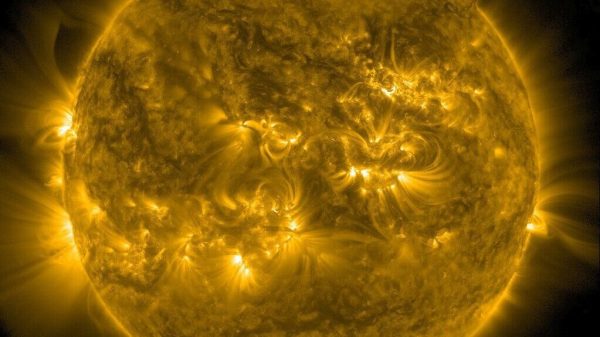

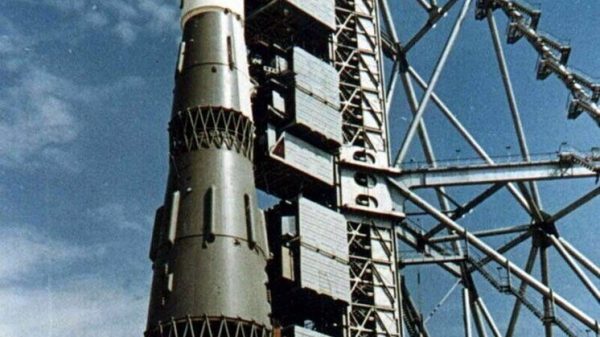












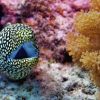
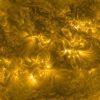

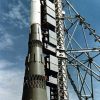

















Свежие комментарии